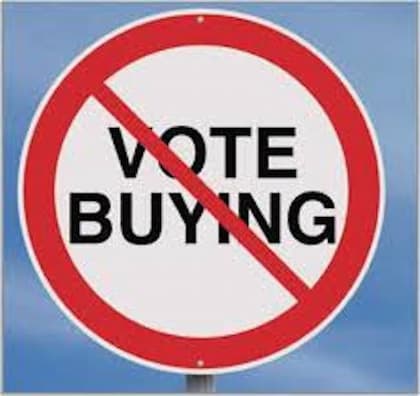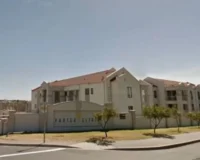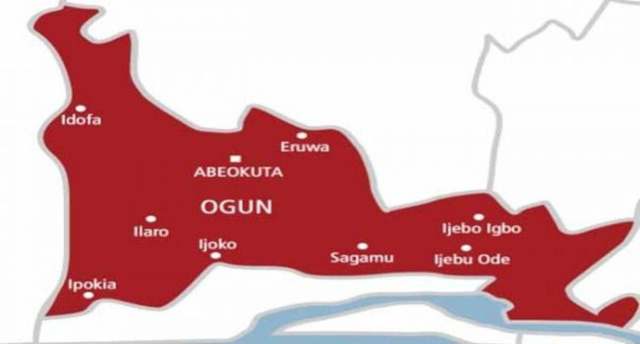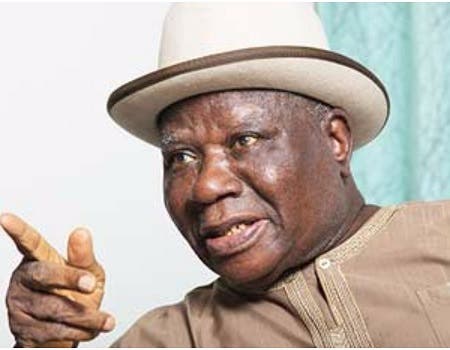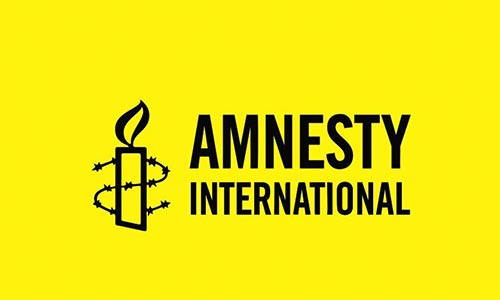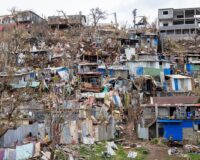The 2022 primary and gubernatorial elections in Nigeria brought to the fore the reality of vote buying.
According to news reports, delegates to the primary elections of the two major parties were paid thousands of dollars to induce them to vote for certain candidates.
Vote buying and selling had been an important determinant of electoral victory in the primary election – and that this was true of Nigeria more broadly.
Vote buying has been part of Nigeria’s electoral history especially since the return of democracy in 1999. But it has assumed a more glaring dimension in the recent elections.
In addition, the manipulation of ballots has gradually given way to material (often financial) inducement. One factor behind this shift is the increased effectiveness of the Independent National Electoral Commission. The use of digital technology has made it more difficult to manipulate election results.
This has put electoral power back in the hands of voters, who may choose to use it as they wish. Agreeing to sell their vote – or refusing to do so – is one option.
The issue of vote buying in the state of Nigeria’s democracy. I describe it as a country in which the institutions and processes of civil rule have been hijacked by elites who are inclined to appropriate the state as their private fiefdom.
This has been described as prebendal democracy, a concept developed by politics professor Richard Joseph. It involves a self-serving elite using state power to accumulate resources, a phenomenon known as elite capture of democracy.
Buying and selling is consistent with the continued materialisation and commercialisation of party politics in Nigeria. Electioneering and partisan relations are commodified in a way that translates to economic exchange.
Vote buying compromises the quality of public leadership by putting mediocre people and rogues into power.
In a report by Vanguard on Sunday, four days to the February 25 presidential and National Assembly polls, candidates and political parties are devising ways to mitigate the effects of the raging Naira scarcity on their electoral quests.
Currently, there is tension in the polity on account of the scarcity of the new N200, N500 and 1000 notes, which has been worsened by fuel scarcity.
Since the Central Bank of Nigeria, CBN, introduced the redesigned Naira and cash limit policy of N500,000 and N5,000,000 a week for individuals and corporate organisations, respectively, many politicians have been kept on their toes.
A host of politicians mainly of the ruling All Progressives Congress, APC, have been kicking against the policy with some claiming that the APC Presidential Candidate, Asiwaju Bola Tinubu, is the prime target of the policy.
Apart from checking vote buying, the Federal Government said the policy is meant to fight inflation and insecurity, especially kidnapping for ransom.
The deadline for the use of the old notes was initially fixed for January 31 but the CBN later extended it to February 10.
President Muhammadu Buhari, on Thursday, extended the use of the old N200 note to April 10, declaring that the old N500 and N1000 notes ceased to be legal tender on February 10, as affirmed by the CBN.
The president’s declaration is not in tandem with an interim order of the Supreme Court, which restrained the Federal Government from implementing the February 10 deadline for use of the old notes based on the suit filed by the governments of Kogi, Zamfara and Kaduna states. The apex court fixed hearing of the suit for February 22.
The Majority Leader of the House of Representatives, Ado Doguwa, on Thursday, lamented that the Naira scarcity was hurting him and other Politicians.
Specifically, Doguwa, who is seeking re-election on the platform of the APC, said he needs N70m “in hard copy” for this election and it is not available due to the Naira crunch.
Doguwa lamented that the naira scarcity caused by the new policy would affect the electioneering expenses of politicians.
The lawmaker, who expressed his reservation over the new naira policy after a meeting with President Buhari at the Presidential Villa, lamented that the policy is affecting the APC.
Citing Section 88(4) of the Electoral Act, Doguwa said: “I need to have this N70m in hard copy. That is the position of the law and as I speak to you, I don’t have it.”
Doguwa noted that all politicians, irrespective of political affiliations, would be affected by the new policy.
“The policy in itself is against the ruling party because Nigerians that are not happy will look at it as a policy of the government of the APC.
“30-40 days to elections you come out with a policy that is not widely accepted by Nigerians, whether we like it or not that will be seen as the programme of the government. So those of us in the APC are not happy about it,” he said.
Plots to beat Naira scarcity
Despite the complaints of politicians, Sunday Vanguard gathered that a host of them were “forward looking” and had mapped out measures to navigate the Naira crunch.
Their moves, the CBN lamented, last week, is partly responsible for Naira scarcity because they are “mopping up” the few redesigned Naira released into circulation by the apex bank.
The Naira mop up is to deepen the measures they are taking to win the election that has become tougher because of the introduction of Bimodal Voters Accreditation System, BVAS, by the INEC to check multiple voting as well as ensure that the real owner of a Permanent Voters Card, PVC, votes.
Before now, some politicians had embarked on expanded stomach infrastructure through the appointment of more aides; ensuring that their faithful got PVCs; and denying perceived supporters of opponents their PVCs.
On Election Day, Sunday Vanguard gathered that part of the measures will be to suppress votes and buy votes in opponents’ strongholds.
Asked the possibility of “compensating” their supporters on Election Day, one grassroots politician said: “we are politicians, we know the game and how to play it.”
Stomach infrastructure
With rising poverty in the land, some politicians have embarked on fresh welfare packages to win the support of would-be voters.
Sunday Vanguard gathered that many politicians are toeing the line of Governor Nyesom Wike of Rivers State, on a higher scale.
Wike, recently, appointed over 200,000 special political appointees and placed them on a monthly allowance of N30,000 to N50,000.
A top leader of one of the political parties told Sunday Vanguard: “Wike appointed 200,000 aides. We are doing a similar thing on a larger scale. We mobilised over one million people for the voter registration and ensured they got their PVCs. The 2023 elections will be different from past elections because of the BVAS and redesigning of the naira. In the past, an officer in charge of some polling units in a Ward may be given N500,000 or one million nairas. From the money, he will take care of agents of the other parties, security agents and INEC officials and we will take charge of the process.
“With BVAS, things have changed. But we are politicians and we know how to play the game. We have mobilized real people, real voters, up to one million in some LGAs. We have started giving them allowances of N10,000 every month and it will continue till the end of the election. We transfer the money into their bank accounts.”
‘Naira scarcity will affect vote sellers more’
Agreeing that the Naira redesign policy has affected politicians, another politician said voters would be affected the more.
“In the past, depending on location, politicians buy votes with N5000, N10,000 or even N20,000, if there was stiff opposition. Now things have changed. With the scarcity of Naira and worsening poverty, votes may be bought with N1000. You have seen what people are passing through to survive and how difficult it is to get cash. Some of them may even sell their votes for N200,” he said.
HUNGER
In the 2022 Global Hunger Index, Nigeria ranks 103rd out of the 121 countries with sufficient data to calculate 2022 GHI scores. With a score of 27.3, Nigeria has a level of hunger that is serious.
Vote inducement has remained a core challenge of our voting system, with a varying scale in every election cycle. For some reasons, the next general elections may not be an exception, and the reasons are not far-fetched: the major drivers of food poverty have widened and multidimensional poverty broadened. Given that the bulk of native voters reside at the rural areas where food poverty is at its peak, it remains a daunting challenge in curtailing the negative effect of hunger in our elections. A hungry electorate can hardly make an informed choice at the poll, as it has a direct influence on the voting pattern of the pauperized electorate.
Vote buying thrives as a means of compromising the electoral process because there are unemployable electorate that can afford to sell their votes at the slightest chance.
With 133 million Nigerians reported by the National Bureau of Statistics to be multi-dimensionally poor, reflecting 63% of Nigerian population, the incidence of vote buying may increase in the elections, notwithstanding the Central Bank of Nigeria’s new naira note policy.
Since hunger affects citizens’ political choices, governments’ social security policies must be targeted at lifting more citizens out of poverty line, rather than widening and weaponizing poverty as a political strategy. Nigeria needs more legal frameworks on food rights, healthy and nutritional food security. Given that food security falls under the Concurrent Legislative List, the responsibility of articulating and implementing food security and nutritional solutions must be on all tiers of government, from the local government to the federal government.
In tackling food poverty, we must focus on a broad set of enduring solutions that will save many people from the risks of certain nutritional deficiencies, resulting from lack of balanced diets. Merely eating to survive is different from eating the right foods that can help maintain and improve one’s health. Poor health condition is also another form of disfranchisement. If many voters are unable to exercise their franchise due to health conditions, it affects electoral outcomes. Improving the quality of food for poor Nigerians is even more important for those with special needs, like people under government’s care in different Internally Displaced Persons camps across Nigeria.
Credit: The Conversation, Vanguard, Global Hunger Index And TheNation

